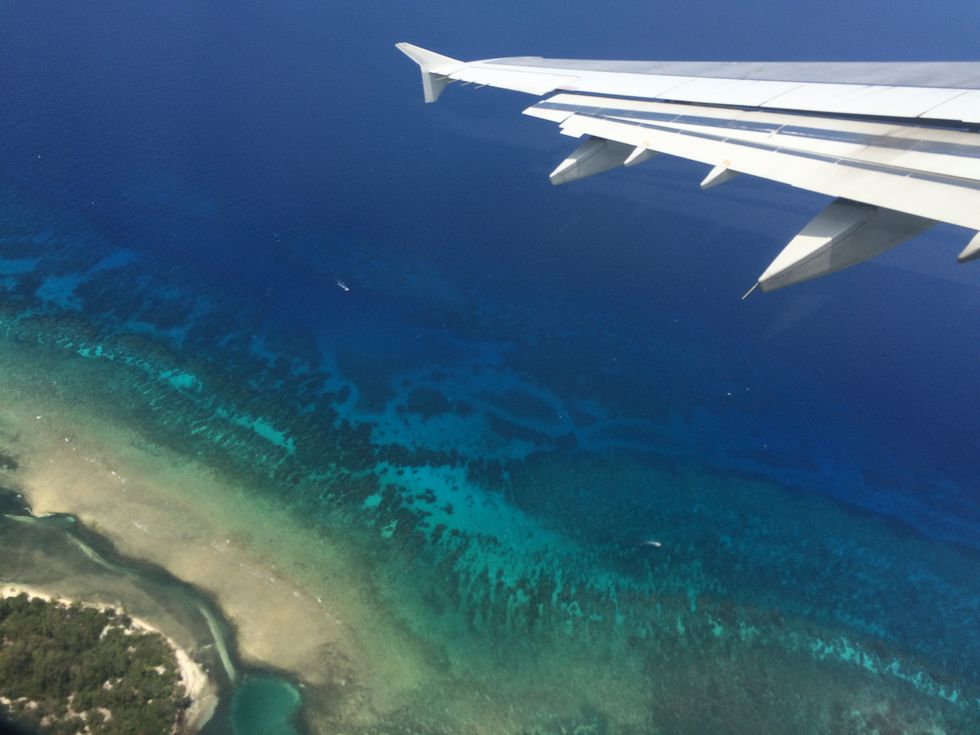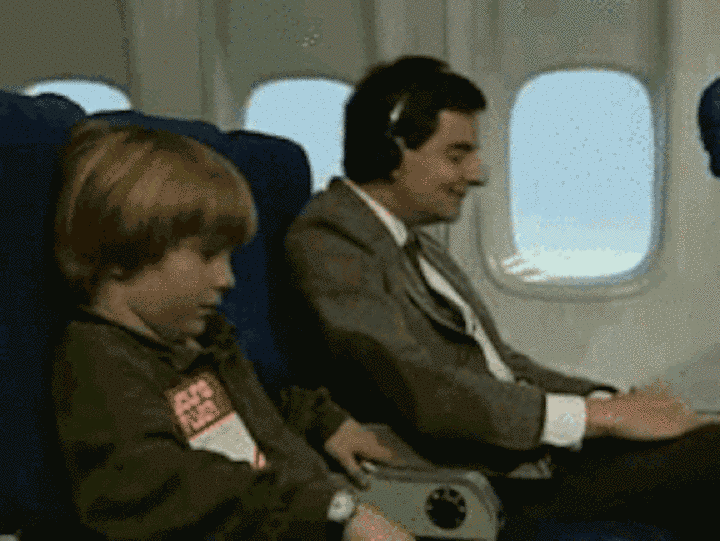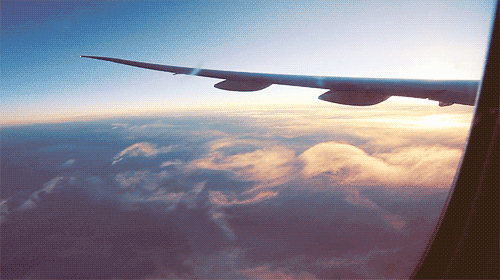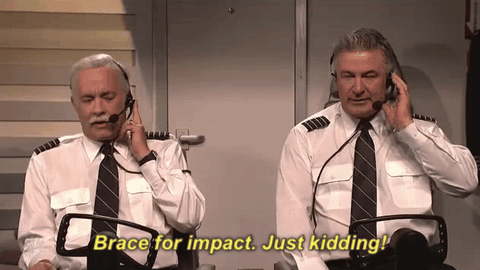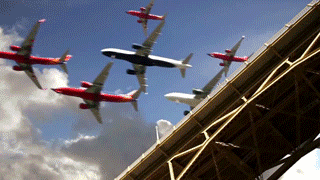Similar to most other college students, I love the thought of graduating and someday having a life that allows me to see the world. I get so much joy from exposing myself to different places and cultures that I have yet to make myself familiar with. However, the one part I can't handle is debated to be the most important part: the plane ride.
Flying is basically inevitable nowadays and with the school year wrapping up that means I, along with many others all over the country, will be flying home to spend my summer relaxing and having fun with people I love. It's an amazing thought to think about being free of my first year of college, but it's hard for me to focus on that when I remember I'll have to spend a few hours on a plane before I can have that. After doing tons of research and getting advice from numerous people, I found some things that I think are helpful while I'm a few miles up in the clouds.
1. Tell a flight attendant or someone next to you how you're feeling.
This one might seem daunting to some people, but this is a trick that works with any form of anxiety — and plane anxiety is no exception! Making someone who is in a position of power aware of your fear, especially one who flies for a living, can work wonders and they might even have advice to offer you.
2. Avoid caffeine before the flight.
Caffeine is known to make anxiety far worse than it would be originally so, as tempting as that Starbucks is as soon as you get through security, it might be a good idea to skip the morning coffee before a flight. Besides, no caffeine means you're more likely to fall asleep on the plane which would save you time that could otherwise be spent worrying.
3. Connect to the wifi.
Lots of flights offer wifi that you can buy and it is definitely something to look into. Sometimes talking to the people on the ground can make you feel less trapped as well as makes the reality of your landing that much more plausible in your mind.
4. Understand why turbulence happens.
Turbulence is a huge factor as to why some people get scared on planes. The reality of it is: it's totally normal. It's just like going over a bump in the road in a car. The plane moves in accordance to the wind pattern it's flying on. It doesn't mean there's anything wrong with the plane, and it usually goes down once you're at cruising altitude anyway.
5. Bring a distraction
The worst thing you can do is sit idly and think about what every little bump you feel or sound you hear could mean. Bring a pair of headphones and listen to music, or read a book. Many planes offer movies, as well, which is a great way to kill a good portion of any flight.
6. Try not to react physically to things that scare you.
Even though turbulence is scary and uncomfortable, you probably shouldn't grip onto your armrests for dear life. Tensing up makes your body think that you're in more danger than you are so sitting back and relaxing could help the fears go away faster. Not to mention, if there's someone else who is uncomfortable with flying and they see how scared you are, it will just make them more scared as well.
7. Realize that once you're at cruising altitude, it's pretty much smooth sailing.
The take-off could be a bit shaky as you're trying to get above the clouds, but once you're cruising, the likelihood of complications goes way down. For many, take-off is the scariest part because it's usually the most turbulent and "dangerous." Once you're in the air, though, there are no other planes or objects up there that can hurt you. It's just you and the clouds.
8. Visualize your destination.
Thinking about where you're going rather than the situation you are currently in can work wonders. More often than not, we are excited to be going to wherever we are taking the plane to. Filling your mind with those positive thoughts rather than dwelling on the undesirable circumstances at that moment is a small way to make a big difference.
9. Maintain control of your breathing.
When your heart rate rises, your breathing starts to get faster. This can cause you to hyperventilate and again, tricks your body into thinking you're in more danger than you actually are. When I'm feeling anxious I make it a point to focus on nothing except successfully taking 10 steady and deep breaths. By the time I reach 10, it is usually enough to have slowed my heart rate back down to normal.
10. Think about how many tests the plane (and pilot) has to go through before you get on.
Pilots go through years of training before they are allowed to fly the planes you're in. The planes themselves are also thoroughly checked before being released to airlines as well as before you get in them. With such a big machine carrying so many people, you can be sure that nobody would just skip over or rush through safety protocol.
11. Remember that air travel is the safest way to travel.
You've probably heard this at one point or another. As hard as it is to accept it, this is actually true. You are significantly more likely to get in a car crash than you are in a plane crash. The chances of you dying in a plane crash are even slimmer. Plane crashes are highly uncommon, especially among commercial flights — you'd have a better chance of getting struck by lightning.

